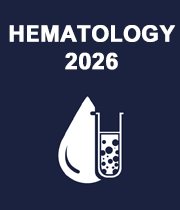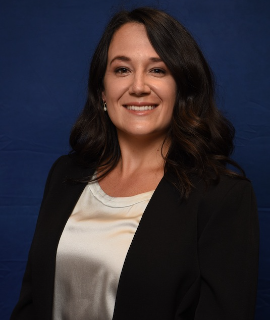Title : Hyperviscosit syndrome induced bilateral visual and auditory impairment in CXCR4-mutant waldenstrom macroglobulinemia
Abstract:
Hyperviscosity syndrome (HVS) is an emergent complication of Waldenstrom’s Macroglobulinemia (WM) characterized by neurological, visual, and auditory impairment. Only few cases of HVS with bilateral visual and auditory impairment have been reported in the literature. We report a 69-year-old female with bilateral visual deficits followed by acute bilateral hearing loss, vertigo, lethargy, and ataxic gait. Visual impairment was secondary to retinal vein occlusion associated with diffuse retinal hemorrhages and macular edema as shown by fundus examination. Auditory and vestibular manifestations were secondary to bleeding in the inner ears as indicated by MRI scan. Diagnostic workup including bone marrow biopsy, monoclonal studies, immunoglobulin levels and genomic profiling led to the diagnosis with MYD88-mutant and CXCR4-mutant WM with IgM level of 4770mg/dL. The patient improved dramatically with plasmapheresis. However, she required three sessions of plasmapheresis as WM was resistant to treatment with bendamustine + Rituximab (BR) and Rituximab + Velcade + Dexamethasone (RVD). Due to bleeding in lower gastrointestinal tract, inner ears, and retina on initial presentation, Bruton’s tyrosine kinase inhibitors (BTKIs) were not used. She was initiated on Zanubrutinib when GI bleed subsided resulting in very good partial response (VGPR) of WM. She also received intraocular treatment with bevacizumab. Although her vision and hearing recovered only partially, she regained significant functionality with the partial vision and use of hearing aid. Management of HVS associated with therapy-resistant WM can be quite complicated. In these cases, aggressive plasmapheresis is required initially to relieve the symptoms and help stop the bleeding so that BTKIs can be initiated. Genomic profiling is helpful as CXCR4 mutation has been associated with treatment resistance like in our case.
This case highlights:
- Bilateral visual and auditory impairment in HVS associated with CXCR4-mutant therapy-resistant WM.
- Aggressive plasmapheresis may be required to manage HVS associated with therapy-resistant WM.



